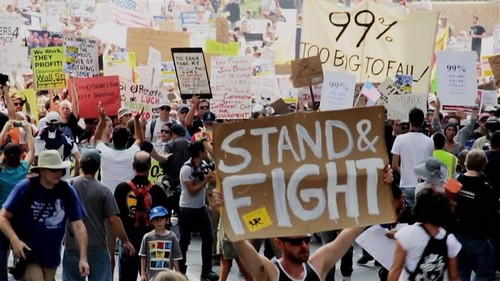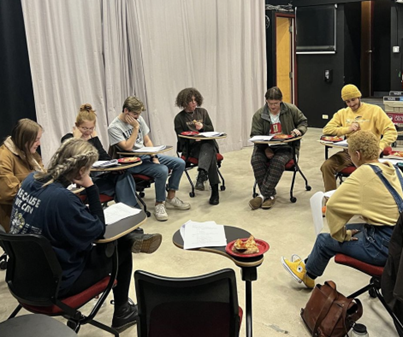 Photo by:
Photo by:
Amidst the abundance of political discussion preceding the upcoming election, Philip Montgomery’s documentary “#ReGeneration” – produced and narrated by Ryan Gosling – encompasses the various issues facing the current generation of young voters. The film incorporates a wide array of perspectives from many influential public figures, elaborating on the apathetic attitude exhibited by what has been widely identified as the “Me Generation.”
Sporting a flawless score completely comprised of original music by Sound Tribe Sector 9 (STS9), “#ReGeneration” includes cameos from the band, as well as Talib Kweli, Howard Zinn, Noam Chomsky, Amy Goodman and many other well-known academic and cultural personalities. A couple expecting their second child, as well as a number of Minnesota-based Eagan High School students, also provide insight into the ways popular media detracts from the average person’s inclinations toward activism and humanitarianism.
The film presents the idea that the current generation is unavoidably saturated with commercial imagery, which initiates shorter attention spans and predominantly materialistic concerns. In short, the youth is less motivated to take action toward igniting societal change. The “I’m-just-one-person-what-difference-could-I-possibly-make” concern consistently resurfaces throughout discussions with the “average” couple and adolescents, while the more influential figures reiterate the importance of thinking beyond the box – namely, the television – and beginning to actively affect the conflicts facing the human race.
The film’s arguments regarding an emphasis on American individualism, and the ways in which constant media exposure numbs kids from the magnitude of problems beyond their own daily bubble, maintain an undeniable validity. However, Montgomery fails to provide an expansive “average” viewpoint on societal roles. The film incorporates a myriad of “celebrity” opinions, ranging from lyricists to independent musicians to history textbook authors, but generalizes the “middle-class” stance to the mindset of a single married couple.
The high school students’ perspectives are presented as cohesively as those of the popular figures, proving truly valuable in determining the “Me Generation” mindset first-handedly. Although most of the kids simply repeat the idea “media influence is bad because it perpetuates materialism, which is also bad,” they provide individual insight into why the current young adult population is less inclined to revolt against injustice than the youth of the 1960s.
The film in its entirety is fluid, touching on a wide variety of relevant political and social problems facing a generally unconcerned populace. Both visually pleasing and intellectually stimulating, “#ReGeneration” does not provide any solutions to these problems; instead, it exists as a catalyst for considering the various factors contributing to apathy, which is the first step to actually making a difference. The message is clear: Turn off the television, leave the Internet and become reacquainted with compassion.











